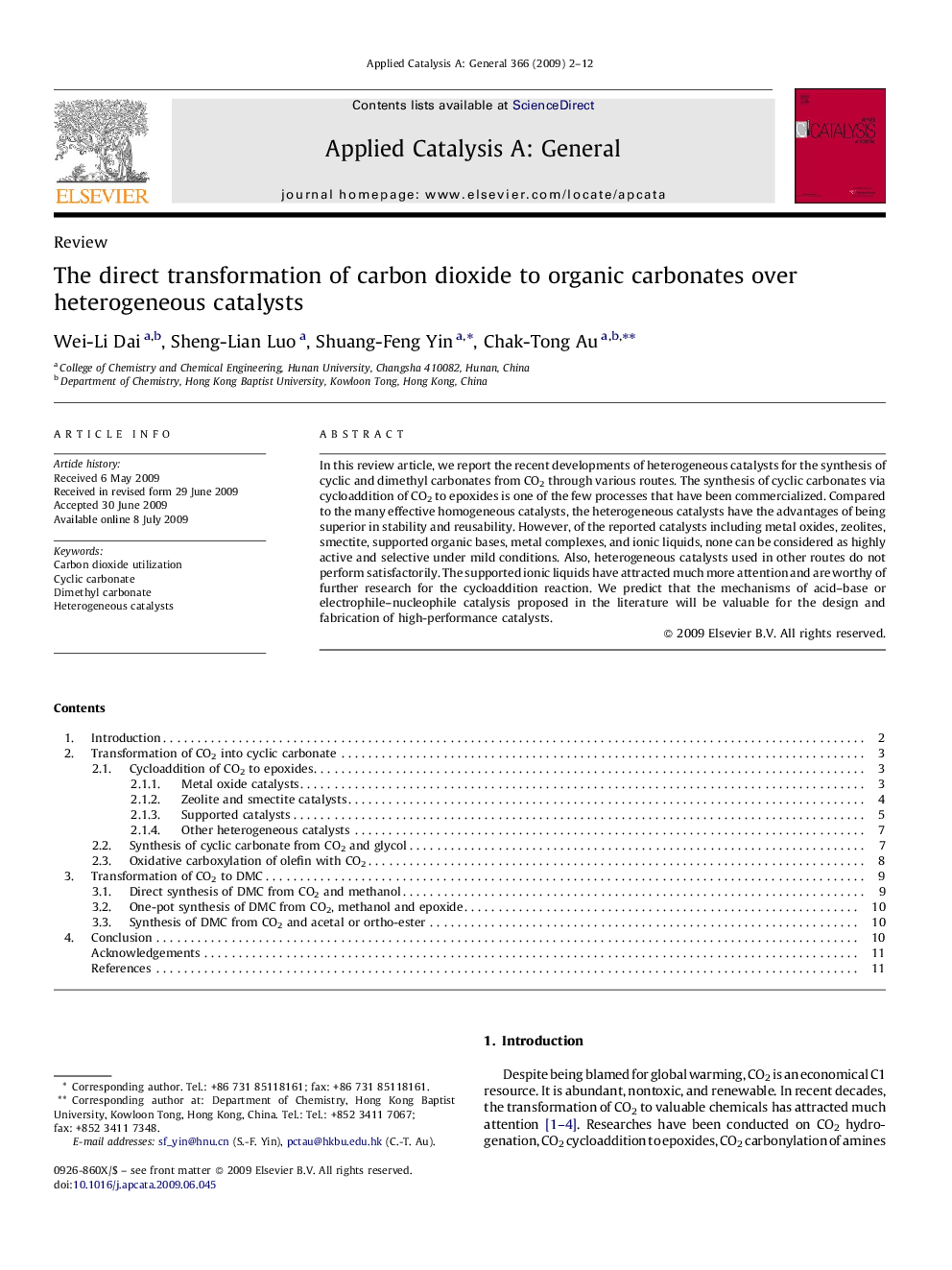| Article ID | Journal | Published Year | Pages | File Type |
|---|---|---|---|---|
| 42751 | Applied Catalysis A: General | 2009 | 11 Pages |
In this review article, we report the recent developments of heterogeneous catalysts for the synthesis of cyclic and dimethyl carbonates from CO2 through various routes. The synthesis of cyclic carbonates via cycloaddition of CO2 to epoxides is one of the few processes that have been commercialized. Compared to the many effective homogeneous catalysts, the heterogeneous catalysts have the advantages of being superior in stability and reusability. However, of the reported catalysts including metal oxides, zeolites, smectite, supported organic bases, metal complexes, and ionic liquids, none can be considered as highly active and selective under mild conditions. Also, heterogeneous catalysts used in other routes do not perform satisfactorily. The supported ionic liquids have attracted much more attention and are worthy of further research for the cycloaddition reaction. We predict that the mechanisms of acid–base or electrophile–nucleophile catalysis proposed in the literature will be valuable for the design and fabrication of high-performance catalysts.
Graphical abstractThe recent development of heterogeneous catalysts for the synthesis of valuable organic carbonates from CO2 through various synthetic routes has been reviewed. The supported ionic liquids are worthy of further research. The mechanisms of acid–base or electrophile–nucleophile catalysis proposed in the literature will be valuable for the design and fabrication of high-performance catalysts.Figure optionsDownload full-size imageDownload as PowerPoint slide
